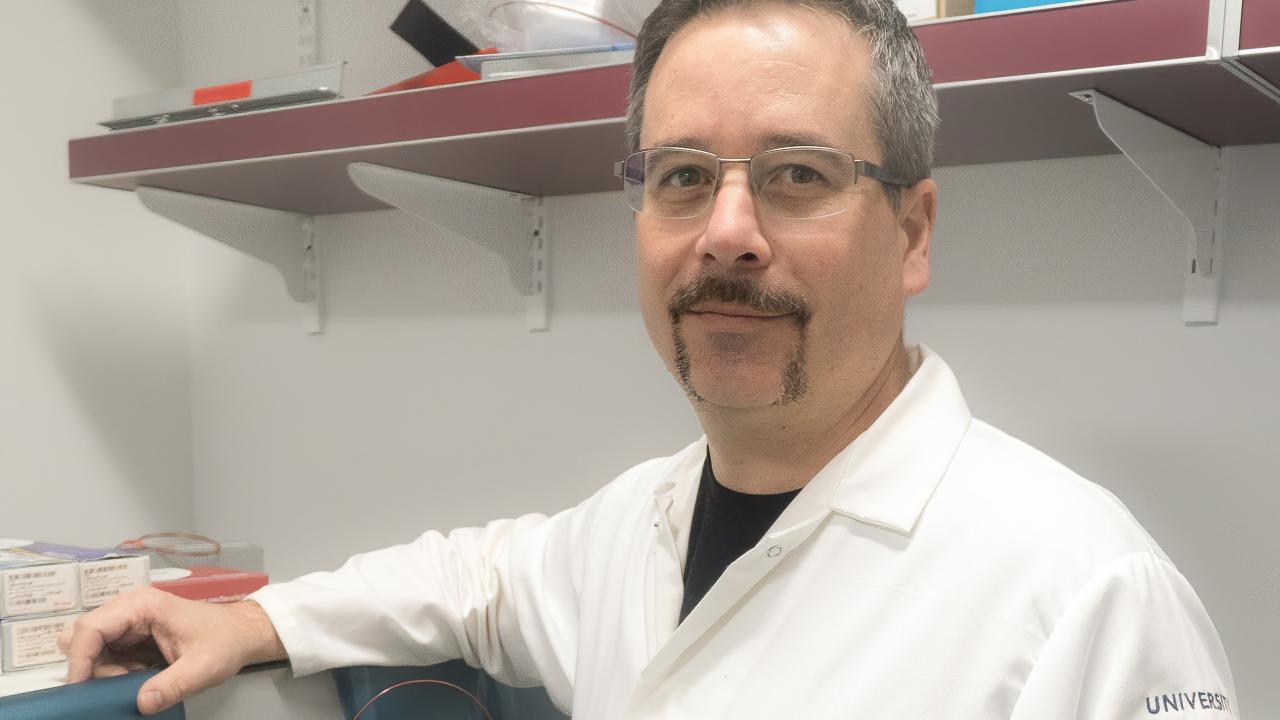
Optimizing Patient Care
**This article appears in the Spring 2023 issue of CCAH Update.**
When a clinical trial takes place to test drug efficacy, there is much more to the study than simply assessing whether a drug works. Associate Professor Luke Wittenburg’s research in pharmacokinetics—what the body does to a drug—plays an important role in this discovery process.
When a drug is administered, pharmacokinetics looks at four stages: how it is absorbed, where the drug is distributed in the body, how the body metabolizes it, and how the drug is excreted. All those components can vary between and within species, making drug dosing complicated.
In veterinary oncology, for example, some drug dosing is built from studies on humans. In recent research published in Veterinary and Comparative Oncology, Wittenburg and other UC Davis veterinarians showed how this is not always ideal. Their research demonstrated that the common chemotherapy drug cyclophosphamide is metabolized differently in humans and dogs. The oral drug can be given all at once or as three daily fractions. When given for three days in humans, increased exposure to the active metabolite makes the drug increasingly stronger. The same does not hold true for canine patients.
“This is why we need to understand how drugs react specifically to dogs, cats, and other animals, then build dosing regimens tailored for each species,” said Wittenburg. “There are even specific populations within a species that may need a more refined dosing, such as cancer patients with kidney impairments compared to ones with normal functioning kidneys.”
This optimization of drug dosing is Wittenburg’s focus as director of a new CCAH Core laboratory that will help clinician scientists with specific aspects of clinical trials.
“We can support an oncology study by measuring drug levels in blood or tissue and apply that to the pharmacokinetics of chemotherapy drugs,” said Wittenburg. “For example, a drug may work in one dog but not another. We can help determine if it was the drug that didn’t work or just the concentration of it.”
Wittenburg credits funding from CCAH donors with much of his success at UC Davis. CCAH grants helped establish his initial research program several years ago, and every pharmacokinetics research project since has been funded by the center. The funding has even snowballed into larger projects – preliminary data collected from CCAH-funded research led to him receiving a National Institutes of Health grant for five years of research funding.
# # #
